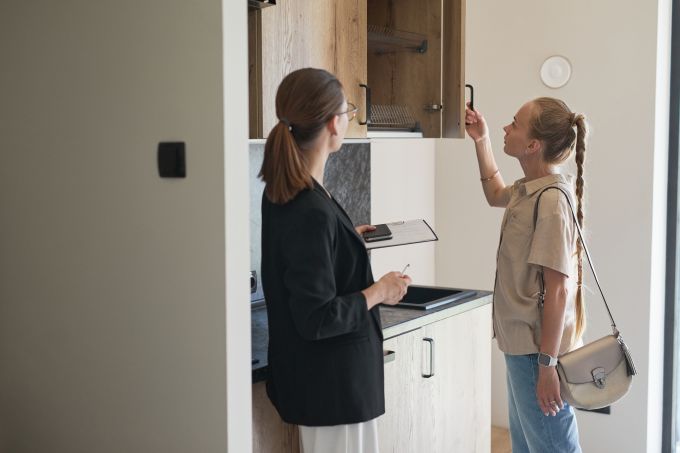Moving out on your own is a huge, exciting life step, but it can also be a massive adjustment. While you might be focused on picking out the perfect curtains and couches, it's easy to overlook the hidden expenses that come with independent living. These costs, from utilities to insurance, can add up fast, so taking time to understand them now will save you a lot of stress down the line.
Here’s a breakdown of what you need to know to get a head start on your financial independence!
Utilities
These services can vary widely depending on your living situation.
- If you're in an apartment complex, your rent often covers water and sewage. Easy-Peasy.
- But if you're renting a private home or a privately rented apartment, you’re usually responsible for a longer list of things like electricity, natural gas, heating, and garbage collection.
The key takeaway? Don't just assume what's covered. When you're talking to a potential landlord, make sure to ask for a full list of all utilities you'll be paying for and what the average monthly cost looks like.

Don’t skip renters’ insurance
Many first-time renters make the common mistake of thinking their landlord's insurance covers their personal belongings. Makes sense... right? Even so, unfortunately, it’s incorrect. A property owner's policy only protects the building itself, leaving your furniture, clothes, and other possessions vulnerable to disasters like fire, theft, or water damage. Investing in a renters insurance policy is a smart and affordable (in the long run) way to protect your assets and your peace of mind.
Build healthy credit habits
Living independently offers the perfect opportunity to start building a strong credit history, a crucial part of your financial future! Good credit can help you get better loan rates down the road for a car, a house, or other big purchases. You can start building good credit by focusing on a few basic habits:
- Pay your bills on time: This is the single most important factor in your credit score! Timely payments on rent and utilities are a sign of responsibility and will give your score a nice boost (and keep your landlord happy). On the flip side, late or missed payments will bring it down fast.
- Use our no annual fee credit card: Credit card fees can feel like a nuisance, but our Platinum Rewards MasterCard takes that worry away. By making small, regular purchases like your groceries and paying the balance in full each month, you can build a solid credit history without incurring extra charges or interest!

Pro tips for first-time renters
Ready for some real talk? Beyond the bills, these tips can help you get a handle on your finances and your new life.
- Carefully read your lease. We know, it's not the biggest page-turner, but it's a legally binding document that details your responsibilities and rights as a renter. Take the time to understand everything in the lease, from the pet policy to maintenance expectations, and don't be afraid to ask your landlord for clarification on anything that isn't clear.
- Start a small emergency fund. While it’s fun to be an independent adult, life loves to throw curveballs. Start a small emergency fund to cover unexpected expenses, like a flat tire or a dentist visit. Even a little bit saved each month can give you a nice safety net.
- Be smart about food. Eating out is a huge budget-buster. Make a list and plan your meals for the week based on what's on sale at the grocery store. Cooking at home is not only cheaper but also healthier. Repurpose leftovers by designating one night a week as "leftovers night" to reduce waste for a themed dinner!
- Take lots of photos before you move in. Before you move your belongings into your new place, take plenty of pictures and videos of the rental's condition. Document any existing issues or damage and make sure your landlord has copies. This protects you from being charged for damage you didn't cause and helps ensure you get your security deposit back.
- Track your spending. It might not sound fun, but knowing where your money goes is empowering. Use an app or a simple spreadsheet to track your spending for a month. You might be surprised where your cash is really going, which will help you make better financial choices going forward.
- Find second-hand furniture. Your first place doesn't need all brand-new stuff! Check out local thrift stores, online marketplaces, or even yard sales for affordable, pre-owned furniture and decor. You can oftentimes find unique pieces with character for a fraction of the cost.
Here’s to the beginning of your independent journey!
Moving into your own place is a big, exciting milestone, and with it comes a lot of learning. But with a little planning and these simple strategies, you can feel confident and in control of your finances. Think of it not as a list of chores, but as a roadmap to a more financially secure and independent future. Start small, stay consistent, and before you know it, you'll be a pro. Welcome to the independence club!